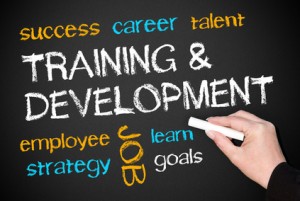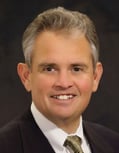This post is authored by Terrence G. Ives, President of ISA 2013.
While the U.S. and world economies are still struggling to grow, there are important steps that manufacturers and process industries can take to improve their competitiveness.
Workforce training can play a vital role in boosting operational performance and productivity. Well-trained  employees are better able to adapt to change—a must in today’s economy—and less likely to search for employment elsewhere. A recent study found that the two areas that drive employee loyalty are the businesses’ focus on employees, and training and development opportunities. A high rate of employee retention is generally good for the bottom line.
employees are better able to adapt to change—a must in today’s economy—and less likely to search for employment elsewhere. A recent study found that the two areas that drive employee loyalty are the businesses’ focus on employees, and training and development opportunities. A high rate of employee retention is generally good for the bottom line.
Training also aids the transfer of organizational knowledge. Given the rapidly aging workforce, it’s essential that well-trained, long-time employees share their knowledge and expertise with incoming, younger employees.
During the deep recession that began in 2008, many companies reduced their training budgets. Now, as some evidence of economic growth is emerging, is the ideal time to recommit to workforce training.
ISA, through its leading automation and control training programs, can better prepare technicians and engineers—from those new to the job market to the highly experienced—for the workplace demands and advanced manufacturing jobs of the 21st century.
Without a doubt, ISA’s worldwide leadership in automation and control training begins with—and is sustained by—our subject matter experts. ISA’s instructors and consultants are preeminent in their field. They’re tried-and-true professionals, with the unrivaled knowledge and marketplace experience to provide practical, real-world solutions.
Since they’ve worked in virtually every area of engineering and automation, they’ve seen and done it all, and have the savvy and know-how to craft customized training programs that meet customers’ unique needs and expectations.
ISA also offers a comprehensive range of training courses—targeted to virtually all technical fields and available in many flexible formats. From one-day to week-long classroom instruction and onsite training programs to a wide array of online, instructor-assisted courses as well as webinars, ISA provides valuable training to meet any lifestyle and preference.
And ISA is constantly looking to innovate and introduce new training programs and packages.
In late 2012, ISA introduced a new training program that makes available several of ISA’s most popular and comprehensive technical training courses to areas of the U.S. where ISA instruction has not previously been offered.
The program, TechTour, makes it more convenient, and more cost effective for automation and control technicians and engineers living in these areas of the country to get the in-depth training they need. Beginning later this month and through the end of this year, ISA will be conducting four ISA TechTour courses in 10 communities throughout the southwestern and western U.S.
Two other recently unveiled ISA training programs are being extremely well received. ISA Technician Training Boot Camp includes a week of intensive technical training that combines minimal lecture time and extensive hands-on lab instruction with plant tours, a technical library, and networking events. ISA Automation Engineering Survival Training takes this same intensive-training approach and agenda format, but for engineers.
I encourage all ISA members to take a closer look at ISA training, and learn the many ways it can benefit you and your company. Investment in employee training is an investment in both personal and corporate success. And through its expert-led, world-class training, ISA can help make that investment pay off.
About the Author
Terrence G. Ives is the third-generation president and owner of Ives Equipment Corporation in King of Prussia, Pennsylvania, a process control manufacturing representative and stocking distributor. Terry has been actively involved in ISA leadership for many years. He has held numerous positions at the local and Society level including Society Treasurer, Executive Board Parliamentarian, Finance Committee Chair, Investment Committee Chair, District 2 Vice President, and Philadelphia Section President and Exhibit Chairman. He received a bachelor of science degree in industrial systems engineering from Ohio University.



